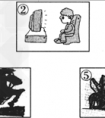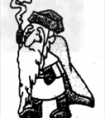按要求写句子。1. He does well in maths.(改为否定句) _________________________________________________2. Mike is shorter than me. (改为同义句) _______________-六年级英语
第二句中的now是进行时的标志,表示正在进行的动作的客观状况,所以后句用一般现在时。
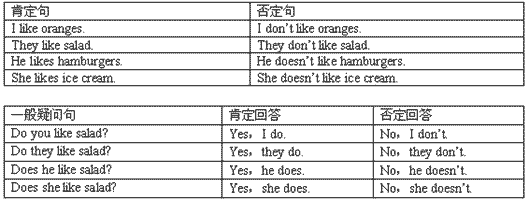
第三人称单数的构成见下表:
|
词 |
构成 |
举例 | |
|
一般情况 |
词尾+s |
动词原形 |
第三人称单数 |
|
work(工作) |
works | ||
|
以-ch, -sh, s, x, o结尾 |
词尾+es |
teach(教) |
teaches |
|
以“辅音字母+y”结尾 |
变y为i,再加es |
fly(飞翔) |
flies |
一般现在时的特殊用法:
一些动词可用一般现在时来表达现在进行时:
verbs of the senses: hear,see,taste,smell,feel
verbs of the thinking: believe,know,mean,realize,think,remember
verbs of the linking: dislike,fear,heat,like,love,want
verbs of the possession: belong,have,own,possess
考点名称:助动词
助动词:
协助主要动词构成谓语动词词组的词叫助动词,被协助的动词称作主要动词。
构成时态和语态:助动词是语法功能词,自身没有词义,不可单独使用,它没有对应的汉译,
例如:Hedoesn'tlikeEnglish.他不喜欢英语。(doesn't是助动词,无词义;like是主要动词,有词义)- 小学涉及到的助动词主要是do,以及它的两种时态:does和did。
例:Does he work in the factory? 他是在这个工厂工作吗?
Do you have a pen? 你有一支钢笔吗?
He didn’t go to school yesterday. 他昨天没有去上学。
助动词do 的用法:
1)构成一般疑问句,例如:
Do you want to pass the CET? 你想通过大学英语测试吗?
Did you study German? 你们学过德语吗?
2) do + not 构成否定句,例如:
I do not want to be criticized. 我不想挨批评。
He doesn't like to study. 他不想学习。
In the past, many students did not know the importance of English. 过去,好多学生不知道英语的重要性。
3)构成否定祈使句,例如:
Don't go there. 不要去那里。
Don't be so absent-minded. 不要这么心不在焉。
说明: 构成否定祈使句只用do,不用did和does。
4)放在动词原形前,加强该动词的语气,例如:
Do come to my birthday party. 一定来参加我的生日宴会。
I did go there. 我确实去那儿了。
I do miss you. 我确实想你。
5) 用于倒装句,例如:
Never did I hear of such a thing. 我从未听说过这样的事情。
Only when we begin our college life do we realize the importance of English.
只有在开始大学生活时我们才认识到英语的重要性。
说明: 引导此类倒装句的副词有never, seldom, rarely, little, only, so, well等。
6)用作代动词,例如:
---- Do you like Beijing? --你喜欢北京吗?
---- Yes, I do. --是的,喜欢。(do用作代动词,代替like Beijing.)
He knows how to drive a car, doesn't he?
他知道如何开车,对吧? - 基本助动词:
be, do, have, 他们没有词汇意义,只有语法作用,如协助构成进行体,完成体,被动态,否定句,疑问句等。
例如 He is giving a lecture. 他在作报告
He has made a plan. 他已经订了计划
The small animals are kept in the cages. 小动物都关在笼子里。
助动词协助主要动词完成以下功用:
a. 表示时态,例如:
He is singing. 他在唱歌。
He has got married. 他已结婚。
b. 表示语态,例如:
He was sent to England. 他被派往英国。
c. 构成疑问句,例如:
Do you like college life? 你喜欢大学生活吗?
Did you study English before you came here? 你来这儿之前学过英语吗?
d. 与否定副词not合用,构成否定句,例如:
I don't like him. 我不喜欢他。
e. 加强语气,例如:
Do come to the party tomorrow evening. 明天晚上一定来参加晚会。
He did know that. 他的确知道那件事。
- 最新内容
- 相关内容
- 网友推荐
- 图文推荐
上一篇:根据图画提示,完成句子,每空填一词。1. The hippo _ _than the monkey.2. John_every Sunday.3. He _yesterday.4. Look, the girlnow.5. She is going to ____ t-六年级英语
下一篇:He is ____ than me. He often plays football.[ ]A. strongB. strongerC. tall-六年级英语
零零教育社区:论坛热帖子
| [家长教育] 孩子为什么会和父母感情疏离? (2019-07-14) |
| [教师分享] 给远方姐姐的一封信 (2018-11-07) |
| [教师分享] 伸缩门 (2018-11-07) |
| [教师分享] 回家乡 (2018-11-07) |
| [教师分享] 是风味也是人间 (2018-11-07) |
| [教师分享] 一句格言的启示 (2018-11-07) |
| [教师分享] 无规矩不成方圆 (2018-11-07) |
| [教师分享] 第十届全国教育名家论坛有感(二) (2018-11-07) |
| [教师分享] 贪玩的小狗 (2018-11-07) |
| [教师分享] 未命名文章 (2018-11-07) |

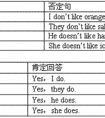
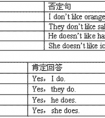
![Myuncleisforty, buthe ____________thanmyfather.[ ]A. lookyoungB. lookslikeyoungC. looksyoungerD. looksgettingyoung-六年级英语](http://www.00-edu.com/d/file/ks/4/1/30/2019-08-17/smallddb860e524a845aa74ac06d29a7422b81565981628.png)
